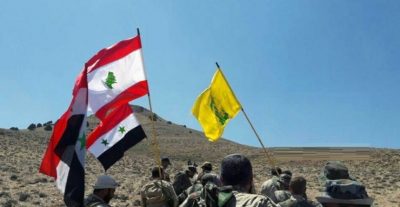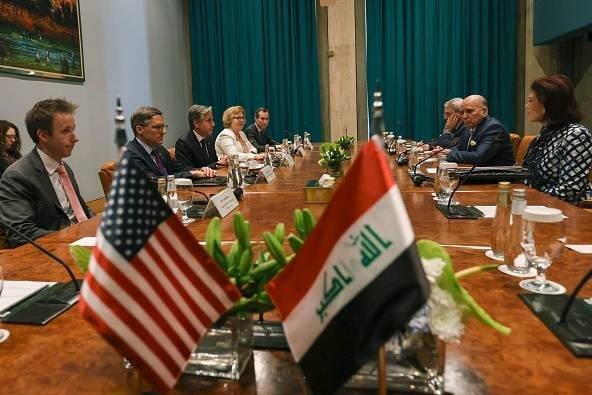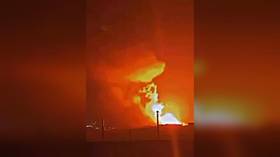NOVANEWS
Is Saudi Arabia Engaging Iran in a New Regional Conflict?

The House of Saud’s bid to engage with Iraq after almost a quarter century is illustrative of the former’s renewed push to create a regional wedge against the fast increasing Iranian influence in Iraq, as also in the Middle East, where Iran has played a no small role in defeating the self-styled Islamic State.
This renewed engagement has also received blessings from Washington, which is actively seeking to use its leverage and military presence in Iraq to change its pro-Iranian foreign policy orientation, and thereby use it to contain Iranian influence. Whereas this anti-Iran thrust is a part of the Trump administration’s policy of ‘isolating’ Iran, it also reflects that even the drastic failure that the US-Saudia sponsored ‘terrorism project’ has received has not led them to making a sane policy, one that may introduce stability than inject new flashpoints of conflict.
But this is not happening. Containment of Iran was, in fact, the central agenda in the last meeting Rex Tillerson had with Saudi Arabia’s king Salman and Iraqi Prime Minister Haider al-Abadi in Riyadh on October 22. That the meeting and the diplomatic momentum that preceded it had been blessed by the US is evident from the role that Brett McGurk, the US special presidential envoy for the Global Coalition to Defeat ISIS, has been playing in the region. As such, while McGurk is supposed to coordinate with anti-ISIS activity in the region, he often tweets about Saudi Arabia and Iraq. “Breakthrough diplomacy over last 9 months by secretary Tillerson, Iraqi, Saudi leaders…. vital to post-ISIS stabilization in region,” he tweeted on the day of the October 22 meeting, referring obviously to drive Iran out of Iraq in accordance with the image the US has built of Iran that shows the latter as a ‘destabilizing element’ in the region. A lot more is to come yet!
Saudi Arabia has already opened its border crossing with Iraq, indicating its willingness to open itself in other areas if Iraq works in tandem with them to roll back Iran. While a lot of diplomatic activity is taking place in Iraq because of the fact that the US has considerable presence there, for Saudi Arabia it is not just Iraq that it wants Iranian influence to roll back from. Saudia’s hegemonic ambitions cover the whole Middle East, stretching from Iraq to Syria and Lebanon, and most importantly to Yemen.
While a lot of fighting is taking place in Yemen and Saudi Arabia continues to blame Iran for its inability to overcome the Houthis, a recent country where Saudi Arabia and Iran have clashed in a rather non-militant manner is Lebanon. The resignation of Lebanon’s prime minister only indicates Saudi’s new manipulations to force the Iran backed Hezbollah and Israel in a new conflict. There is as such a reason why Hezbollah has blamed Saudi Arabia for the resignation of Hariri. Hezbollah has shown that it clearly is mindful of the game the Saudis are playing in the region.
While Hariri stepped down in a televised address from Saudi Arabia and blamed Hezbollah and Iran for meddling in the country’s internal affairs, this might only be a prelude to a new Hezbollah-Israel war—something that might enable the Saudis to force Iran to shift its focus away from Iraq and Syria.
This is how things might be forced to turn ugly in Lebanon. The Saudis, by pulling Hariri out of his office, seem to be hoping to ensure that Hezbollah gets stuck with the blame and responsibility for Lebanon’s challenges, from caring for Syrian refugees to wiping out Al Qaida and ISIS affiliates. This will probably require Hezbollah to assume more control in Lebanon—something that Israel is most likely to sees as a red-line. A stronger Hezbollah in Lebanon means a stronger Iranian presence close to Israel, forcing Israel in a conflict with them.
The possibility of this extended confrontation was clearly pointed recently in a report of Hareetz, which said that “Israeli leaders have been preparing for the next war with Hezbollah since 2006. Iran’s increasing assertiveness across the region makes clear that, even more than the last war, it will be a fight to diminish the Iranian threat on Israel’s borders (Lebanon). Israel and Saudi Arabia are fully aligned in this regional struggle, and the Saudis cannot help but be impressed by Israel’s increasing assertiveness to strike at Iranian threats in Syria”; hence their manipulations in Lebanon to force a new conflict and use this opportunity to off-set Iran’s gains in Iraq, Syria and Yemen.
That Israel is engaging in a new conflict with Hezbollah is already evident in Syria. Recent Israeli raids against Hezbollah (targets) in Syria certainly mark an escalation in their attacks. Besides it, Israeli warplanes have also been making intensive overflights in the south of Lebanon during the past few days. Besides it, Hariri’s resignation has been seen, much to the satisfaction of Riyadh, as a wake-up call in Israel, leading Netanyahu to warn the “international community to take action against the Iranian aggression that is trying to turn Syria into Lebanon.”
This is evident here that conflict in the Middle East is far from over. On the contrary, it appears to be expanding now even after ISIS has been defeated. What this resumption of crisis, which might lead to armed conflict in an otherwise “post-ISIS” era, also shows is that ISIS itself was never the actual source of conflict; it was regional powers, powers which have re-started their manipulation by introducing an artificial crisis in Lebanon and by squarely blaming Iran and Hezbollah for this. The US-Saudi nexus is, therefore, only pursuing the same agenda it had started to materialize by first starting a war in Syria and then in Iraq through their proxy groups.



